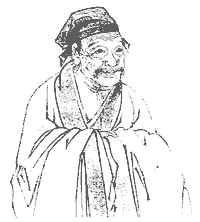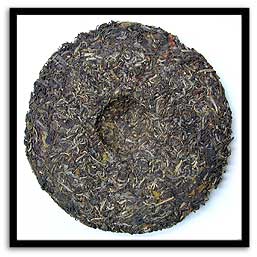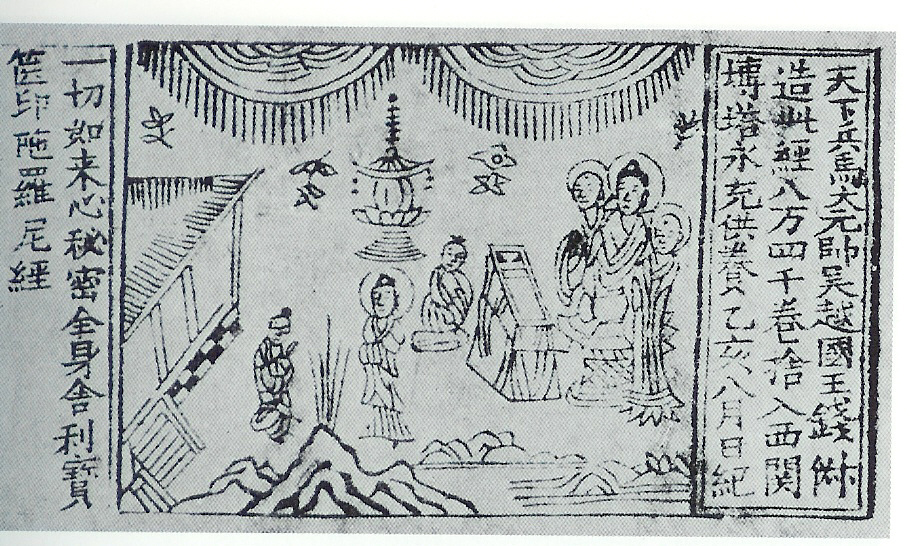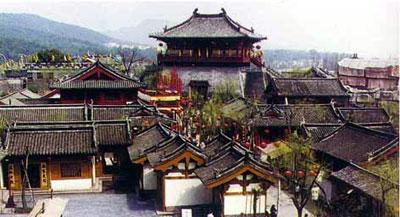 Zhu Xi (1130-1200): philosopher, reformer, educator
Zhu Xi (1130-1200): philosopher, reformer, educatorHist 487_6: Summing up Lee's and Tu's texts on education
- The first schools were attached to Buddhist or Daoist monasteries or temples located in secluded scenic spots; they were designed to educate the offspring of aristocratic families of the Tang.
- After the 7th century private schools run
by wealthy clans for their members and private schools for paying students became
popular.
- In the early Song systematic school building was not yet pursued by the state;
this began in the 1030's when the state took an increasing interest to take
influence in the formation of schools and the curriculum taught.
- The state endowed local and prefectural schools with land, appointed teachers
who had to fulfill certain educational standards to the schools; the state provided
the teachers with a steady salary in order to motivate them to render excellent
service, and equipped the schools with book donations.
- Many established schools received offcial recognition.
- The budget of the Directorate of Education was increased.
- The Imperial University was established in the capital.
- The examination sytem which served to recruit officials for the civil service
was refined:
a. The content of exams consisted of expositions of the meanings of the Classics.
b. Successful exam candidates of prefectural exams (= lowest level of official exams in the Song)
were exempt from labor services: exams propelled upward social mobility; in 1116 all students registered in government schools were exempt from labor services and certain taxes.
c. In order to register in a school the candidate had to prove that he did not have a criminal record, was neither a Daoist nor a Buddhist monk, and did not come from a contemptible profession.
d . To supervise preparations and observe the students' conduct school residency was required for candidates before taking the prefectural exam (under Wang Anshi: 300 days).
e. In higher education Wang Anshi introduced rigorous exams within the university: in a strict, selective process students advanced from an Outer Hall to an Inner Hall and from there to an Upper Hall.
f. Soon this selective process was taken over by all local government schools [in the year 1104, 200,000 men were registered in government schools = 1 out of 230].
g . A quota system was created in order to ensure that every district was represented in the exams [which privileged certain people from a given area].
- Wang Anshi's opponent, Sima Guang, did not approve of the period of school residency for candidates; he stressed sponsorship of candidates by established officials [which could lead to corrupt practices]; in addition he set up ten categories according which the moral fitness for office by a candidate could be tested; he also opted for an exam in classical learning and moral integrity [of course the testing of a candidate's 'moral fitness' was a very weak point in his design of the exams].
- Disadvantages of the educational system:
a. the entire education was directed at the civil service; if a candidate started
school at age 8, proceeded to higher education at age 15 but was called to office
only when he was forty, he spent 25 years 'in waiting' for an official position;
b. new purposes of education had to be formulated; eventually education per
se came to be acknowledged as highly necessary because the values of the
state could be transmitted [even if the student/scholar would take up a profession
non-related to government service such as becoming a teacher, publisher, collator
of books, book seller, local scribe, playwrite etc.].
It was also realized that the process of learning disciplined and developed
the mind; an insightful mind was the expression of a balanced personality which
would be capable to cope with any adversity burdened on him by fate
 Zhu Xi (1130-1200): philosopher, reformer, educator
Zhu Xi (1130-1200): philosopher, reformer, educator
- Song Neo-Confucian education was concerned
with the explanation of the Dao, instilling a drive for learning in the student,
and with the teaching of politics.
- Explaining the Dao was the attempt by Confucian thinkers to approch metaphysical
questions [asked in religions by fundamental theology or theoretical cosmology]
- Confucian education in the Song tried to convey that the ultimate value of
human existence is humanity'; this perfection of human nature could be achieved
through self-effort or self-cultivation.
- The level of self-cultivation achieved by the ruler will determine the extent
to which the people will be governable since political leadership manifests
itself in moral persuasion.
- Self-cultivation can be achieved by continuously practicing and mastering
the 6 Confucian arts: ritual, music, archery, charioteering, calligraphy, and
arithmetic; mastering the 6 arts results in achieving discipline of body and
mind.
- Since the Classics mediate humanistic visions of
poetic, political, social, historical, and metaphysical character it is essential
that learning should concentrate on gaining a deep understanding of the Classics;
knowledge of the contents would create a common basis of insight and harmonize
all who share this background; a society harmonized by these shared insights
would possess a synchronized resonance.
- Man being positioned between Heaven and Earth was seen as participating in
the transformations of the cosmos; through personal knowledge and self-cultivation
one could learn to be human; this quality would find expression in the inclinations
of one's thoughts and actions, no matter whether they were of poetic, political,
social, historical, or metaphysical character.
Some images pertaining to topics of
material culture in the Song:


Ramie plant and ramie fibres; the fibres are taken from the stalks of the plant
 Teacake
Teacake

Illustrated woodblock print from the
Song (found in a brick of the Leifeng Pagoda, Hangzhou
 printed paper banknote
printed paper banknote
 page set with movable types
page set with movable types

Modern 'themepark': reconstructed 'Song city' quarter of Hangzhou